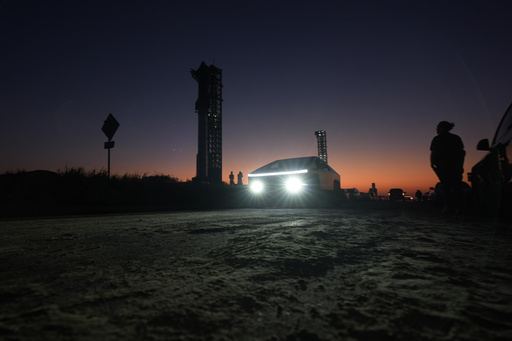
In appointing business magnate Elon Musk as a key figure to reduce costs within the U.S. government, President-elect Donald Trump is following a historical precedent. Back in 1982, President Ronald Reagan enlisted J. Peter Grace to oversee a commission focused on cutting federal bureaucracy. However, Musk’s extensive business interests present a more complex situation compared to Grace’s tenure.
Musk is at the helm of multiple enterprises, notably SpaceX, which has lucrative contracts with NASA. Additionally, as the CEO of Tesla—a company that benefits from various government tax incentives and adheres to vehicle safety regulations—Musk’s business dealings are closely intertwined with federal oversight more than ever. Other ventures of his, including the social media platform X, the AI company xAI, brain implant manufacturer Neuralink, and the tunnel construction firm Boring Company, also have government interactions in significant ways.
Experts have pointed out the potential conflicts of interest that arise from Musk’s position. According to Ann Skeet, who directs leadership ethics at Santa Clara University’s Markkula Center, the direct connections between his business endeavors and governmental interests could influence his guidance and decision-making in favor of those operations. Furthermore, Musk’s prominent political contributions, estimated at around $200 million to support Trump, alongside his close ties with political leaders globally, bolster his influential standing.
Trump’s initiative to establish a “Department of Government Efficiency,” humorously abbreviated as DOGE—referencing the cryptocurrency Dogecoin—will see Musk collaborate with former GOP presidential candidate Vivek Ramaswamy. This effort has been described as an opportunity to eliminate excessive regulations that are perceived as hindering progress, a sentiment Musk expressed on social media.
While Trump has indicated that Musk and Ramaswamy will function externally to the government, advising the White House and cooperating with the Office of Management and Budget on reforms, the framework raises questions regarding conflict of interest laws. Richard Painter, a former White House ethics lawyer, noted that if Musk were officially part of a government agency, he might be required either to divest from his businesses or refrain from involvement in matters pertaining to them. A potential waiver from the president could allow Musk to bypass these laws, a practice that has stirred political controversy in the past.
Despite attempts by Tesla, SpaceX, and X to clarify Musk’s intended level of involvement, responses remained pending as of midweek. However, it is anticipated that Musk’s proposals for cost-cutting and efficiency could significantly shape government operations, particularly regarding auto safety regulations.
Tesla’s interactions with the National Highway Traffic Safety Administration (NHTSA) have historically been contentious. NHTSA has mandated recalls against the company’s wishes and launched investigations that challenge Musk’s assertions about nearing deployment of fully autonomous vehicles. Critics worry that any push for cuts to NHTSA’s funding could undermine safety oversight, adversely affecting the very regulations meant to monitor the companies Musk leads.
Michael Brooks, the executive director of the Center for Auto Safety, highlighted the potential dangers of a Musk-influenced Department of Government Efficiency, suggesting that it could lead to severe reductions at NHTSA. Missy Cummings, director at George Mason University, indicated that while some government functions could benefit from efficiency, NHTSA is already lacking sufficient staffing, raising concerns that Musk’s strategies might obstruct regulatory enforcement.
On the frontier of space exploration, Musk’s SpaceX is pivotal for NASA’s Artemis program, receiving over $4 billion to facilitate future lunar missions. The firm has faced challenges with the Federal Aviation Administration over regulatory hurdles that Musk views as unnecessary bureaucratic delays. SpaceX holds numerous contracts for launching supplies and astronauts to the International Space Station worth billions, complicating Musk’s relationship with federal regulators.
Moreover, Musk’s other venture, the social media platform X, is under scrutiny from various federal agencies regarding data privacy. The Federal Trade Commission has been investigating how he manages sensitive user information, while the Securities and Exchange Commission continues to examine Musk’s acquisition of the platform.
His involvement in AI through xAI also raises environmental concerns, particularly from community advocates who worry about pollution created by the facility’s gas turbines, located near disadvantaged neighborhoods.
In summary, Musk’s dual role as a powerful entrepreneur and a consultant to the government poses unique challenges and opportunities that intersect on multiple fronts, shaping the potential future of federal regulatory frameworks.
